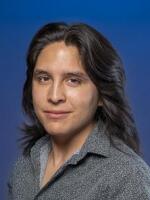In bars, casinos and restaurants throughout Nevada, Cinco De Mayo will be celebrated with margaritas and mariachi hats.
Many people are going to assume this celebration is in honor of Mexico’s Independence Day.
It isn’t. Mexico’s Independence Day is Sept. 16.
So what’s the real story behind Cinco de Mayo — and maybe more importantly: where does the holiday stand in the eyes of the Mexican community?
Maria Raquel Casas is a history professor and program director of LatinX studies at UNLV.
The origin of Cinco de Mayo is the Battle of Puebla in the 1862, in Puebla City where Mexican forces defeated the French. The day is celebrated in Puebla annually, but not elsewhere in Mexico. In the U.S., May 5 became a celebration of Mexican American culture, celebrated in California, mostly.
Marketing campaigns in the 1980s spread the celebration further in the U.S.
“Is it at least an acknowledgment that Latinos are present and part of the American culture? Yes, but when it's seen as a Mexican celebration, it should be seen as Mexican American, and the fact that it has been a part of American culture through this ethnic community for over 100 years, if you want to acknowledge that, but people tend to not want to be that educated about it.”
She said it bothers her when the holiday becomes cultural appropriation – “frat boys wearing sombreros and mustaches.” By teaching it correctly, she said it’s “an act of defiance,” considering the controversy on the term critical race theory.
“We are now a national presence. And a little appreciation, a little understanding of what it means would be great, I think, for America as a whole,” she said. “But to try to get Americans to understand history has always been a big challenge.”
Maria Raquel Casas, history professor and program director, LatinX studies, University of Nevada, Las Vegas










